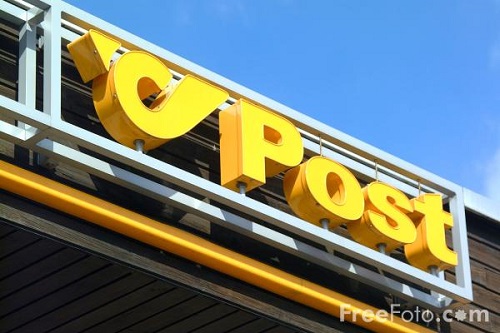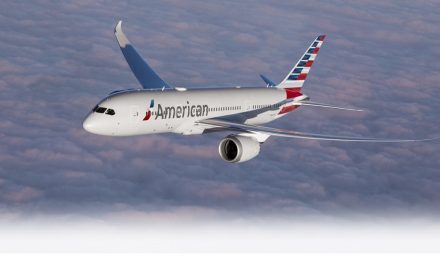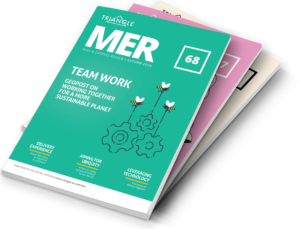
Set the airlines free
Maurice Flanagan, 73, has aviation fuel running through his veins. The managing director of Emirates Group, based in Dubai, has worked in the airline industry for 49 years, following national service in Britain's Royal Air Force. He's partially deaf from standing near the early jetliners, which were ear-splittingly noisy. His son-in-law trains Airbus pilots in Dubai.
Emirates is a midsize airline with 38 wide-bodied aircraft serving 53 destinations. Flanagan runs a lean operation, with a return on capital employed averaging 21% a year since inception in 1985 (the industry as a whole has never made a profit for more than two to three years at a time). It's growing rapidly: Revenue-seat-kilometers has risen more than 20% annually, and by 2010 it will have 100 wide-bodied jets.
Despite the buffeting received by the industry since Sept. 11, Emirates placed orders for $15 billion worth of aircraft in November. Good timing: Flanagan can extract the best terms from Airbus and Boeing when his competitors are reeling. But what makes this grandfather-of-four so confident in the future? Get this: Flanagan actually believes that competition is good for you.
Emirates is wholly government-owned, but its shareholders aren't dumb. They have never shelled out a cent of subsidy. Nor have they protected their airline by demanding reciprocal traffic rights from another government. It actually welcomes foreign airlines (134 of them), because they boost tourism and create lots of jobs. And Emirates remains fiercely independent; it has no intention of joining one of those airline alliances. "Big alliances are really cartels; they exist to dominate markets," says Flanagan. "Alliances, however well-intentioned they profess to be, ultimately act against the public interest."
These sentiments are refreshing in an industry that's stuck in a time warp. Here is the great irony: airlines have probably done more than any other business to bring the world together, yet they are forced to act as if globalization had never happened. The national barriers to free competition remain so strong that the only way the big airlines believe they can get around them is by forming alliances. These enable competing airlines to join forces without actually merging to offer passengers a more comprehensive route network.
It has to be said that, despite all the red tape, airline competition has been growing over the past 20 years. Kenneth Button of George Mason University in Virginia found that in the first decade of deregulation, passenger boardings on important U.S. routes increased 55% and fares dropped 17%. In the 1990s, Button says, fares dropped a further three percentage points, and boardings for U.S. domestic flights increased to 600 million a year from 275 million. And of course there are fare bargains galore on the internet.
But if all the restraints to airline competition were removed, the companies would not have to compete with one hand tied behind their backs. Air fares would fall faster. And the growth in demand for air travel would accelerate, feeding billions more visitors into what is already the world's largest industry of travel and tourism. In most countries, such as India, the protection of one or two air carriers, employing a few thousand people, denies work for 100 times that number of people in hotels, resorts, shops, ground transport, restaurants, theaters and so on.
Consider the quandary of American Airlines and British Airways–two of the largest carriers on transatlantic routes. They have been trying to form an alliance for six years, but each time they approach the hangar, they are stopped at the door by the regulators. The most recent time this happened was at the end of January. The U.S. Department of Transportation was so concerned about the 50% share of key transatlantic routes controlled by the two airlines that it demanded that they give up 224 take-off and landing slots per week at London's Heathrow airport. This was the price officials would exact for antitrust immunity, and it was too high for the airlines, ba in particular. It would have cost them hundreds of millions of dollars in annual operating profits, they said, so the two airlines withdrew their proposed alliance.
"We look at each deal on a case-by-case basis," says Read Van de Water, the assistant secretary of transportation for aviation affairs. There isn't a concern when it's a country like Burkina Faso. But, she adds, "when you have something like the AA-BA deal, we have to take a closer look." The collapse of the would-be alliance led, in turn, to the indefinite postponement of talks between the U.S. and British governments on traffic rights. Both had hoped that an agreement with the two airlines on slots at Heathrow would have paved the runway for an open-skies treaty between the two countries. An open-skies deal allows airlines from either country to fly to the other without requiring regulatory approval for routes, schedules or fares.
The U.S. has signed 56 open-skies agreements since 1992, including 11 with members of the eu, and a multilateral one with Singapore, Brunei, New Zealand and Chile. An open-skies agreement with Britain would have been the most important ingredient in liberating the transatlantic market. Make no mistake, these open-skies agreements are better than the restrictive bilateral deals that they replaced. They have given airlines greater freedom to compete. Sure enough, international fares on these liberalized routes were 20% lower in the past three years than they would have otherwise been without open-skies agreements.
Lower fares have led to heavier traffic. The number of passengers traveling between the U.S. and Europe on open-sky routes rose by 31% between 1997 and 1999, twice as fast as between 1993 and 1995.
But these agreements are not meant to "open" skies in the true sense of the word. What they have done is to allow U.S. airlines to fly freely to and from Europe, Asia and Latin America. In return, foreign airlines have been given antitrust exemption so they can form alliances with U.S. carriers. But the other countries' airlines do not have the freedom to fly anywhere in the U.S. These carriers can operate routes to the U.S. only from their own countries and so can't fully exploit their regional markets. And they cannot pick up passengers in one U.S. city and fly them to another destination (known as cabotage).
The absence of cabotage is a big black hole in the open sky, because the U.S. market is a quarter of global air travel. It's not the only hole, however. Japan mostly shuts out foreign carriers from cabotage. And U.S. carriers cannot pick up passengers in, say, Paris and fly them on to Berlin. But this is less a problem in Europe because the countries are so much smaller than the U.S.
Why is the airline business so tangled? A combination of national pride and national insecurity. The rules were established at a 52-country convention in Chicago in 1944. It's hardly surprising that in wartime the signatories would opt for bilateral agreements governing fares, routes and slots allocated to national, state-owned (except for the U.S.) flag carriers.
The system began to loosen up in 1978 when President Jimmy Carter deregulated the U.S.' domestic aviation market. The eu followed suit in 1988, and over the past two decades many national governments have gradually divested themselves of all or part of their stakes in the flag carriers.
But liberalization has been piecemeal. Governments still control 70 airlines. Button estimates that there are still 1,200 bilateral air-service agreements in place. In truth, the airline industry has long been run partly as a public utility and partly as a business. If the companies were run solely as businesses, this would be good both for their passengers and their shareholders. But this requires comprehensive deregulation. Leaving some restrictions intact would nullify the benefits of liberalizing other parts of the industry. There are three main issues that have to be dealt with if airlines are to fly free.
Ownership. Non-U.S. airlines cannot own more than 25% of the voting stock of an American carrier, and there are analogous restrictions in other countries. This makes no sense. If Daimler can buy Chrysler, if BP can team up with Amoco, why can't similar arrangements be negotiated in the airline industry?
Richard Branson, the founder of Virgin Atlantic, asked the same question two years ago, saying that he wanted to invest $200 million to start a U.S.-based discount carrier that would feed passengers to his international airline at a hub, such as New York's Kennedy airport. He thought that he could cut fares by 20%. The idea never got off the ground, because foreigners aren't allowed to control American airlines. "Americans complain about the Japanese and their protectionism," he reportedly said at the time. "Yet you still have these archaic rules that have no rational reason to exist in this day and age."
Paul Hudson of the Aviation Consumer Action Project in Washington, D.C., cites the case of TWA, which was bought by American Airlines and still went bankrupt. It would have been far better for passengers if a foreign carrier had bought it, he says. "Shielding the airlines from international capital and competition automatically lowers service and increases fares."
Bad air fares and some good ones for business passengers
The cost per kilometer varies enormously, a sign that this is far from being a global market. Among the worst is NY to London.
Traffic rights. Governments should remove themselves entirely from the business of allocating aviation capacity and allow the market to work unfettered. No more open-skies agreements, bilaterals or restrictions on cabotage. If British Airways wants to spend $500 million to develop a U.S. hub and service the spokes, it should be free to do so. And the same goes for United Airlines' making Heathrow into its European hub, if it so chooses.
The European Commission wants to take over the job of negotiating traffic rights from individual governments. It has asked the European Court of Justice in Luxembourg to rule on the legality of individual open-skies agreements on the ground that these deals discriminate against other EU countries' carriers. The commission would like to negotiate a transatlantic common aviation area with the U.S.
This would certainly be better than the hodgepodge of agreements between the U.S. and Europe. An organization with some bargaining clout could at last try to pry open the U.S. domestic market in return for opening the entire eu market of 360 million people. Such a deal could presage a global open-skies agreement. But remember that negotiating blocs tend to move at the pace of the most recalcitrant member.
Clifford Winston of the Brookings Institution believes that the main opposition in the U.S. to cabotage comes from the labor unions, the carriers' management and the Pentagon (it worries about controlling U.S. airspace and airplanes in wartime). "The way to overcome this opposition is incrementally," he says; extend the North American free-trade agreement to cover aviation, let Canadian and Mexican carriers in and "show hard evidence that it works." He points out that the policymakers who opposed domestic deregulation in the 1970s eventually relented after they were shown incontrovertible evidence that deregulated intrastate airlines were charging lower fares per kilometer than interstate ones.
And domestic deregulation in the U.S. led to lower air fares. In Winston's book, The Evolution of the Airline Industry, he and his coauthors concluded that if deregulation were extended to international routes, fares on those routes would fall by 28%. Business customers might not like all the results in terms of amenities, but in these days of corporate budget cuts, those ticket savings may matter more.
Airports. Even if traffic rights were scrapped tomorrow, you'd still be faced with the fact of incumbency: an airline with a dominant share of the slots at an airport. The answer: scrap the slotting system and replace it with the market. Airports would charge an airline a higher price to use the runway at a busy period than when things are quiet.
But deregulation should not stop there. Airports themselves should be privatized. As things stand, airports, in the U.S. at least, are owned by local governments. Airport expansions are normally financed by bond issues underwritten by the airlines that use the airport. This gives the incumbent airlines the veto power over expansion. Privatizing the airports would enable them to finance their growth like any other corporation, thus severing the financing link between the airport and its largest customers. And while we're at it, let's privatize the air-traffic control network as well. Now most air-traffic control systems are government-run, with the result that "they are grossly inefficient," says Winston.
Privatizing the air-traffic controllers raises the visceral issue of safety. Many would argue that the events of Sept. 11 demonstrate that now is the wrong time to loosen the grip of government on the industry–note the imposition of federalized bag screeners in the U.S. But in fact the opposite is true. A completely deregulated industry worldwide would provide a great boost in the demand for travel and tourism, as air fares would fall. Maybe before he becomes a great-grandfather, Maurice Flanagan will see airlines fly free.













